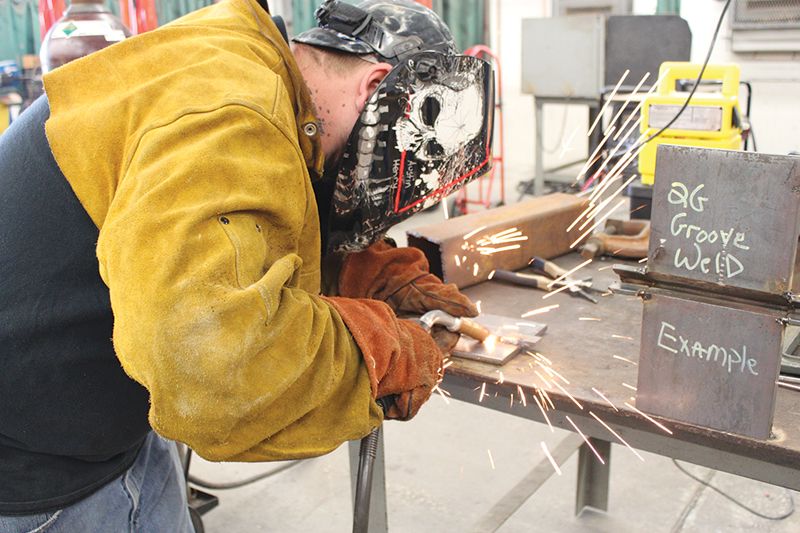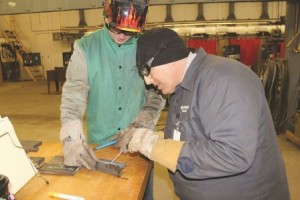Welding Technologies at PTC


 The initial course focuses on cutting, bending, drilling, punching and finishing skills in working with metals. The students then move on to various welding processes and apply their skills such as making groove and fillet welds in overhead, vertical, and horizontal positions. They also learn techniques for groove and fillet welds on aluminum and stainless steel, and carbon steel.
The initial course focuses on cutting, bending, drilling, punching and finishing skills in working with metals. The students then move on to various welding processes and apply their skills such as making groove and fillet welds in overhead, vertical, and horizontal positions. They also learn techniques for groove and fillet welds on aluminum and stainless steel, and carbon steel.